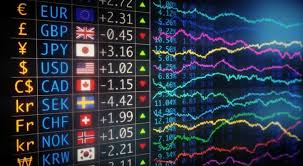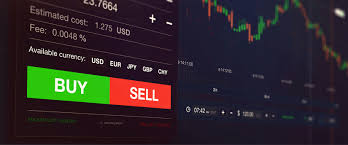
Forex Trading Strategies for Small Traders
In the world of forex trading, small traders often face unique challenges due to limited capital and resources. However, with the right strategies, even those with smaller accounts can successfully navigate the forex market. This article will delve into some effective trading strategies specifically designed for small traders. For those interested in platforms to start trading, check out forex trading strategies for small accounts Trading Brokers in India.
Understanding Forex Trading
The foreign exchange market, or forex, is the largest financial market in the world, where currencies are traded 24 hours a day. Forex trading involves the buying and selling of currency pairs, with traders aiming to profit from fluctuations in exchange rates. Small traders often have limited resources, making it essential to adopt strategies that can leverage their capital effectively.
The Importance of a Solid Trading Plan
Before diving into specific strategies, it’s crucial for small traders to develop a solid trading plan. A trading plan serves as a roadmap for your trading activities, outlining your goals, risk tolerance, and trading strategies. Here’s what to consider when creating a trading plan:
- Define Trading Goals: Determine what you aim to achieve through trading. Are you looking for short-term gains or long-term investment?
- Set a Budget: Decide how much capital you are willing to invest in trading. Ensure that this amount is money you can afford to lose.
- Select Trading Strategies: Choose strategies that align with your trading style, risk tolerance, and market understanding.
- Risk Management: Establish rules for managing your trades, including stop-loss orders to minimize losses.
Popular Forex Trading Strategies for Small Traders
1. Scalping
Scalping is a short-term trading strategy that involves making quick trades to exploit minor price fluctuations. Scalpers typically execute dozens of trades in a single day, aiming for small profits on each trade. This strategy requires a solid understanding of the market and a disciplined approach to risk management, as high-frequency trading can lead to significant losses if not managed carefully.
2. Day Trading
Day trading involves opening and closing trades within the same trading day, allowing traders to capitalize on intraday price movements. Small traders can benefit from this strategy by focusing on highly liquid currency pairs, which typically have tighter spreads. A key aspect of day trading is using technical analysis to identify trends and reversals, helping traders make informed decisions quickly.
3. Swing Trading

Swing trading is a medium-term strategy that focuses on capturing price moves or “swings” over several days or weeks. Small traders can benefit from swing trading by utilizing fewer trades than day trading, leading to reduced transaction costs. This strategy allows traders to hold positions longer, providing more flexibility to analyze market conditions. Swing traders typically use a combination of technical indicators and fundamental analysis to identify potential trade setups.
4. Position Trading
Position trading is a longer-term strategy that involves holding positions for weeks, months, or even years. This strategy is well-suited for small traders who prefer a less hands-on approach to trading. Position traders rely on fundamental analysis and broader market trends rather than short-term price fluctuations. By investing in strong economic indicators or trends, small traders can build wealth over time.
Effective Risk Management Techniques
Regardless of the strategy chosen, risk management is critical for small traders. Here are some essential risk management techniques:
- Use Stop-Loss Orders: Implementing stop-loss orders helps protect against significant losses by automatically closing a position when a certain price level is reached.
- Limit Leverage: While leverage can amplify profits, it can also increase losses. Small traders should use leverage cautiously, ensuring they understand the risks involved.
- Diversify Your Portfolio: Diversification can help spread risk across different currency pairs and reduce exposure to any single trade.
- Keep Emotions in Check: Emotional trading can lead to impulsive decisions and significant losses. Maintaining discipline and adhering to your trading plan is crucial for long-term success.
Leveraging Technology for Trading
In the digital age, technology plays a vital role in forex trading. Small traders should take advantage of various tools and resources available online:
- Trading Platforms: Choose a reliable trading platform that offers user-friendly features, analytical tools, and educational resources suitable for small traders.
- Mobile Trading Apps: Mobile trading applications allow traders to monitor their positions and execute trades on the go, ensuring they don’t miss opportunities.
- Automated Trading Systems: Automated trading systems can help small traders execute trades based on preset parameters, reducing emotional influences on trading decisions.
- Educational Resources: Taking advantage of webinars, tutorials, and trading courses can significantly enhance your knowledge and skills.
Continuous Learning and Adapting Strategies
The forex market is constantly evolving, and small traders must remain adaptable to change. Continuous learning is vital for success in this field. Stay informed about economic indicators, geopolitical events, and market trends that may impact currency values. Regularly review and adjust your trading strategies based on performance and changing market conditions.
Conclusion
Forex trading poses both opportunities and challenges for small traders. By employing effective trading strategies, setting up a solid trading plan, managing risks, and leveraging technology, small traders can increase their chances of success. The key is to remain disciplined, continuously learn, and adapt to the dynamic forex market. Whether you choose scalping, day trading, swing trading, or position trading, always remember that consistent effort and strategic planning are essential to achieving your trading goals.

